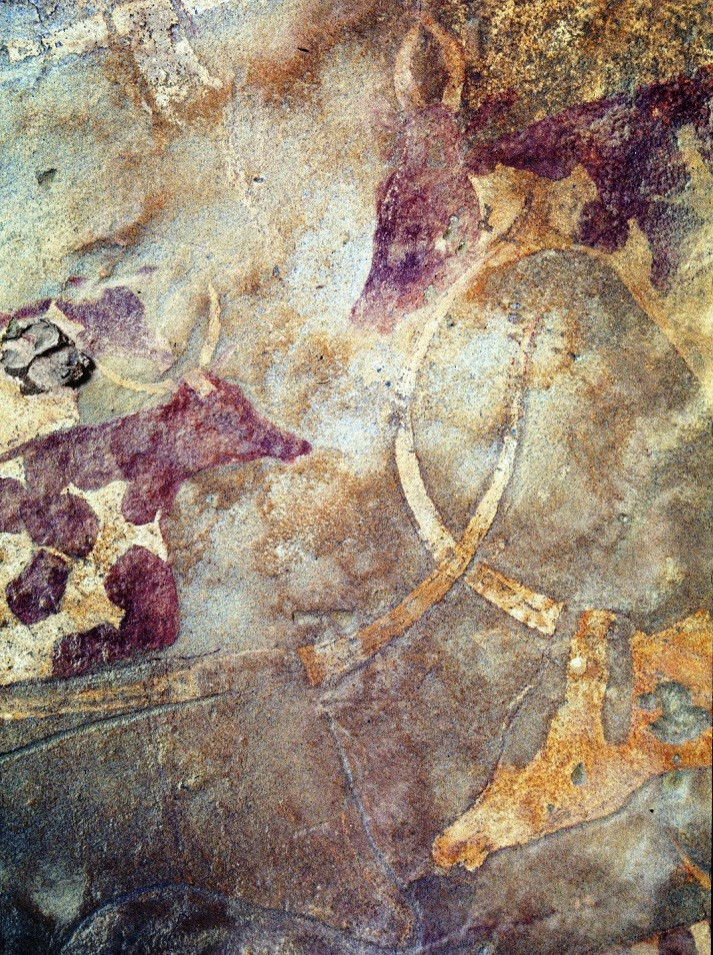Got Prehistoric Milk? Pottery Shards Yield Evidence Of Ancient African Dairy

A British-led research team has uncovered evidence that humans dwelling in the ancient Sahara Desert kept cattle and used their milk nearly 7,000 years ago.
University of Bristol researcher Julie Dunne led a team of scientists that analyzed miniscule traces of animal fat found on 81 pottery shards in a section of Libyan desert. In a paper appearing Wednesday in the journal Nature, the team described how the fats they found confirmed that the pots had been used to process milk products.
They would have made cheese, butter, yogurt, that sort of thing, Dunne said in a telephone interview.
Ancient dairy farmers likely processed the milk into these products because they were lactose intolerant and couldn't drink straight milk. If you process milk, that takes away some of the unpleasant symptoms of lactose intolerance, Dunne says.
Scientists have already uncovered evidence tracing the practice of keeping dairy animals back to 8,000-9,000 years ago in Europe and the Middle East, but this latest find is the earliest evidence of such activities in Africa.
The new find will also help shed light on how humans evolved tolerance for milk thanks to the lactase persistence gene, which seemed to arise around the time that people began consuming milk products, according to Dunne.
Before Dunne and her colleagues were able to analyze the fat traces from the pottery, scientists suspected that dairy farming had been adopted early in Saharan Africa, thanks to rock art depicting cattle, udders, and even people milking cows.
But the rock art could not be reliability dated, and there aren't enough cattle bones at archaeological sites in the Sahara to determine how and when ancient dairy farmers practiced their craft, according to co-author and Bristol researcher Richard Evershed.
Molecular and isotopic analysis of absorbed food residues in pottery, however, is an excellent way to investigate the diet and subsistence practice of early peoples, Evershed said in a statement Wednesday.
© Copyright IBTimes 2024. All rights reserved.





















